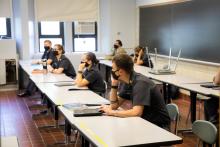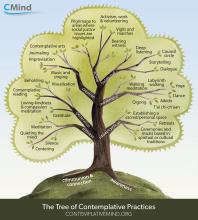DUTTON INSTITUTE NEWS
Welcome to Dutton News! Here you'll find our own reporting on best practices and cutting-edge research in the field of learning design. We also link to news in the broader Penn State community and beyond. This is your comprehensive source for everything happening where the science of learning meets the art of design!
Dutton Digest, Feb. 2021, Part 2
Tag Cloud
You can quickly search our news articles by topic using our tag cloud. Click on a term to see a list of related articles.









